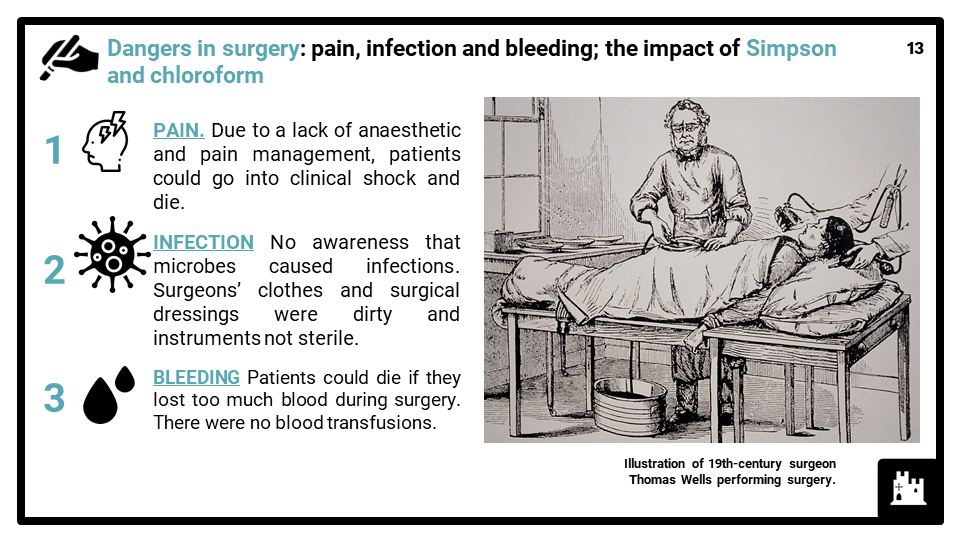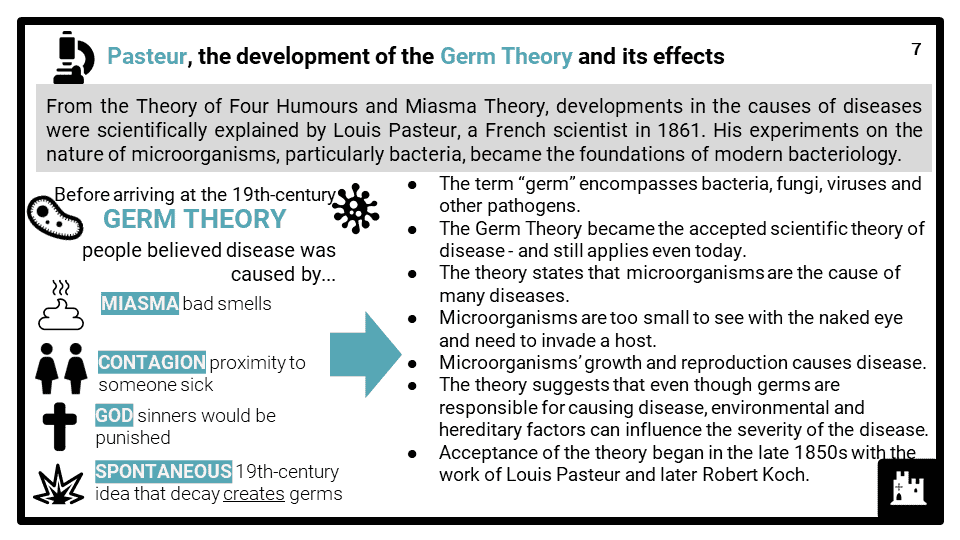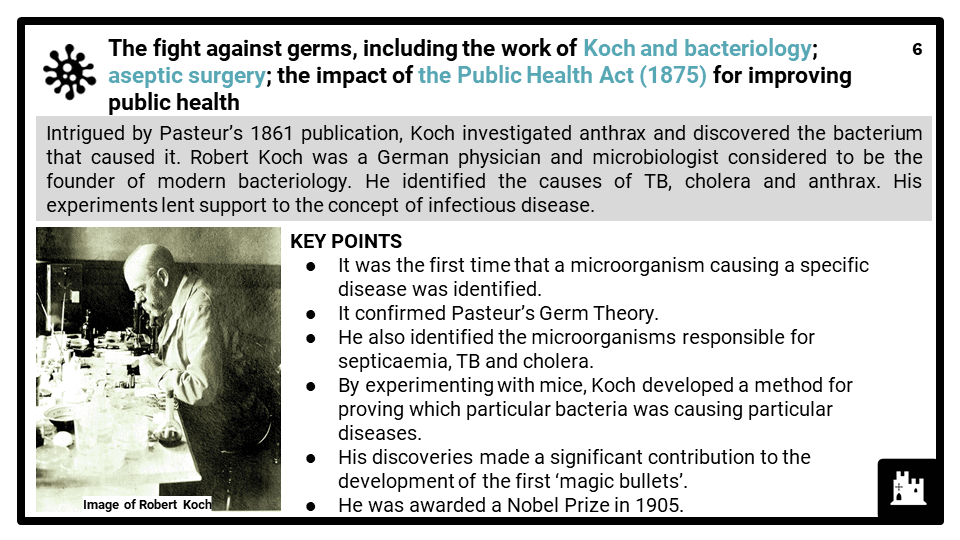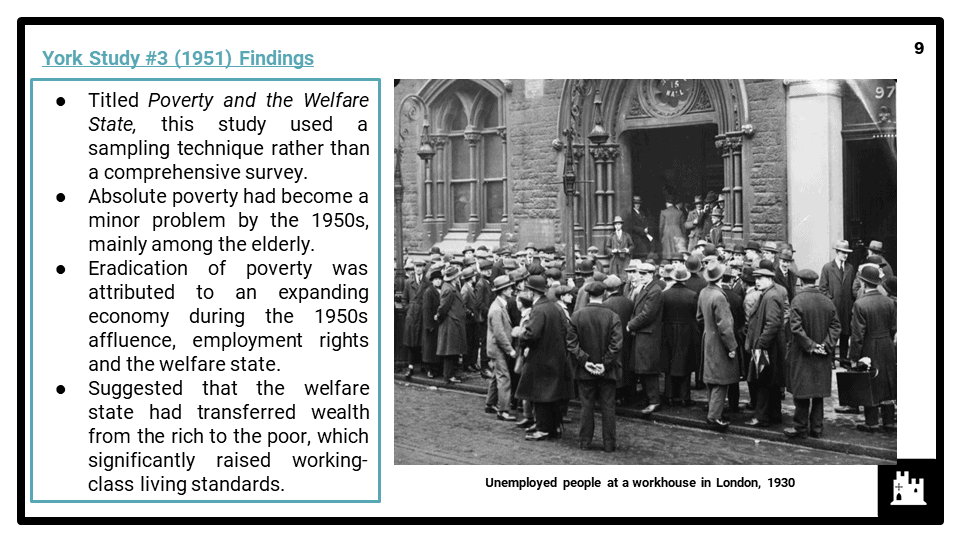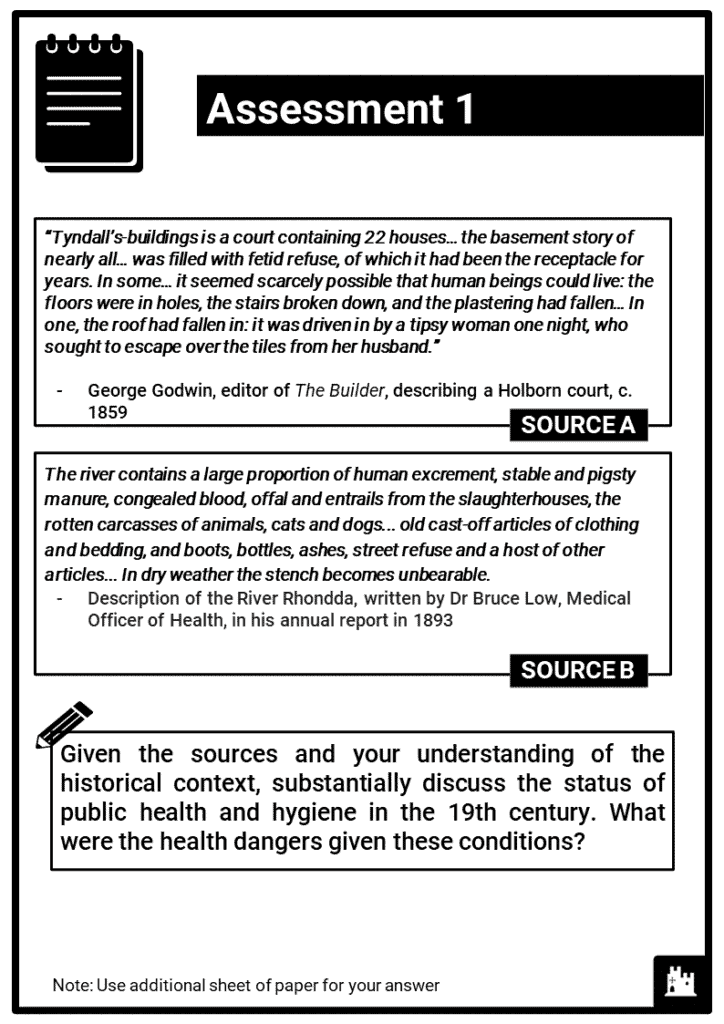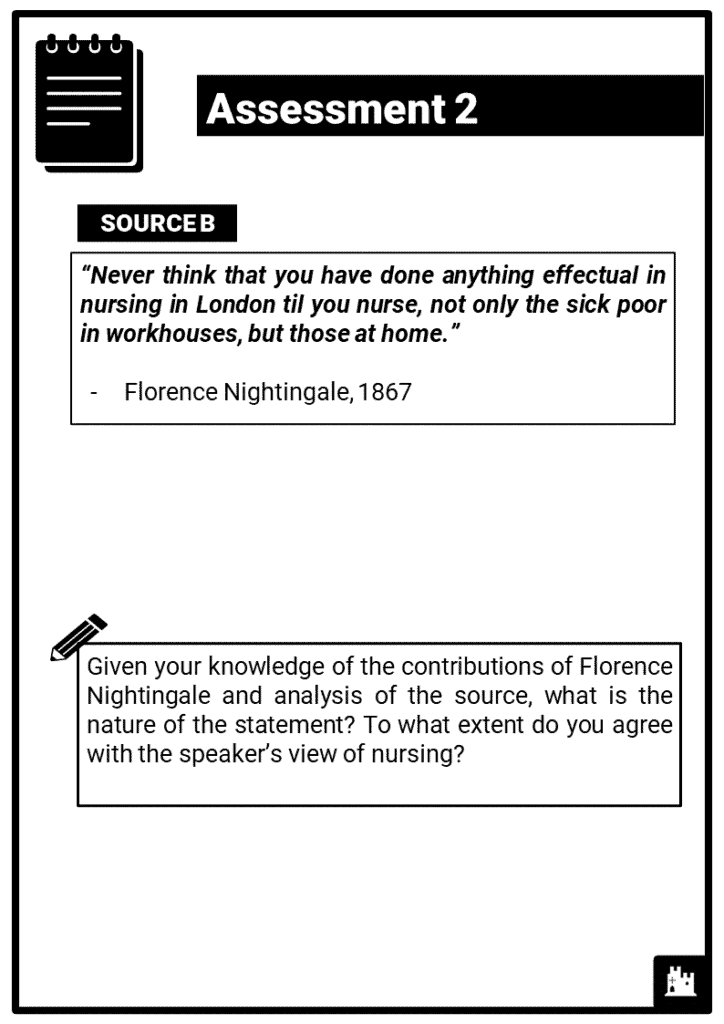Teach any Edexcel IGCSE module B2: Changes in medicine, c1848–c1948, no prep needed!
Do you want to save dozens of hours in time? Get your evenings and weekends back? Be fully prepared to teach any Edexcel iGCSE topic B2?
Every Edexcel iGCSE topic B2 is covered, and each module comes complete with:
Paper 2: Breadth Studies, Changes in medicine, c.1848-1948
What students need to learn:
- Progress in the mid19th century; Nightingale, Chadwick, Snow and Simpson
- Barriers to progress, especially the lack of understanding of causes of disease. Florence Nightingale and changes in nursing and hospitals at Scutari. Dangers in surgery: pain, infection and bleeding; the impact of Simpson and chloroform. Problems and improvements in public health, including the work of Chadwick and the effects of the Public Health Act (1848), the cholera threat and the work of Snow.
- Discovery and development, 1860–75; Lister and Pasteur
- Pasteur, the development of the germ theory and its effects. Improvements in surgery: Lister and the impact of antiseptics. Government action on public health: the significance of Public Health Act (1875). Nightingale and continuing improvements in hospitals and nursing. Elizabeth Garrett and the progress of women in medicine.
- Accelerating change, 1875–1905; Ehrlich, Koch and chemistry
- The fight against germs, including the work of Koch and bacteriology; aseptic surgery; the impact of the Public Health Act (1875) for improving public health; science and medicine: blood transfusions, magic bullets and the work of Ehrlich, radioactivity and the impact of Marie Curie.
- Government action and war, 1905–20
- The impact on public health of the measures (1906–11) of the Liberal Governments. The importance of the First World War for the role of women in medicine and improvements in medical treatment, surgery, x-rays, blood transfusion and fighting infection.
- Advances in medicine, surgery and public health 1920–48; the NHS
- The development of penicillin and the roles of Fleming, Florey and Chain. The importance of the Second World War for developments in surgery, including skin grafts and blood transfusion, and for the role of women in medicine. Beveridge, the development of the NHS and its importance for public health.

